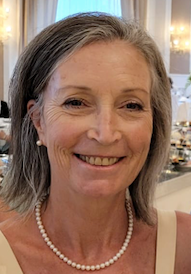
The topic of my thesis developed from thirty years of teaching English as a Foreign Language (EFL) in secondary schools in the south of Italy. Over the years, I have seen and experimented with many teaching approaches, but one that I found to be particularly intriguing was what I have named Online Community Projects (OCPs).
My experience of working with minors meant that ethical thinking came effortlessly. For example, teachers cannot do anything outside their everyday teaching without obtaining signed permission from parents or informing the headteacher and colleagues in writing. In addition, the experience helped me to foresee complications, such as taking students out of other teachers’ lessons or missing their buses home if I asked them to stay after school. In addition, as an insider, I knew that if I offered rewards, my intentions might be misinterpreted, so care was needed for every decision.
The biggest problem was finding the right time to do interviews, and I waited for an elusive moment that only came once during the whole initial study. I learnt from my mistakes and interviewed during my lessons with the classes in question for the primary research. I put the students into groups to work on their OCP activities, and the group that finished first was the one I would interview. Another helpful solution was to use open-question questionnaires with tick-boxes that gave the participants information about the research and the opportunity to refuse or give consent for their answers to be used for publication purposes. However, analysing these decisions was complicated and messy. Therefore I drew up a table following the BERA and Stutchbury and Fox (2009).
One of the most critical issues arising from my initial study was that my data did not teach me anything that I didn’t already know, and I wanted to learn something new. After substantial reading of literature such as Hammersley (2012), Scotland (2012) and Cresswell (2003), I realised that my paradigm was not aligned with my ontological and epistemological viewpoints. Once I had understood this, everything fell into place, and I realised that I had to change my methodology. I decided to use Action Research and Burns’ (1999) iterative framework. This process led me to rethink my research framework and data analysis. The discovery of Stake’s (2006) Multiple Case Study Analysis was a significant breakthrough for me. It led me to introduce three contrasting voices and define five multiple cases connected through the use of OCPs but with different perspectives.
These changes revolutionised my research and understanding of myself and my worldviews. It also led me to make an important discovery that I had no idea about beforehand, transforming my teaching practice and research. All is well that ends well, as they say. Has anyone else been disappointed with the results of their initial study? Please let us know about your experiences and how you overcame them.
Dr. Lesley June Fearn @lesleyfearn


 The two reasons that AR helped me were:
The two reasons that AR helped me were: